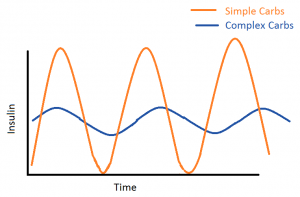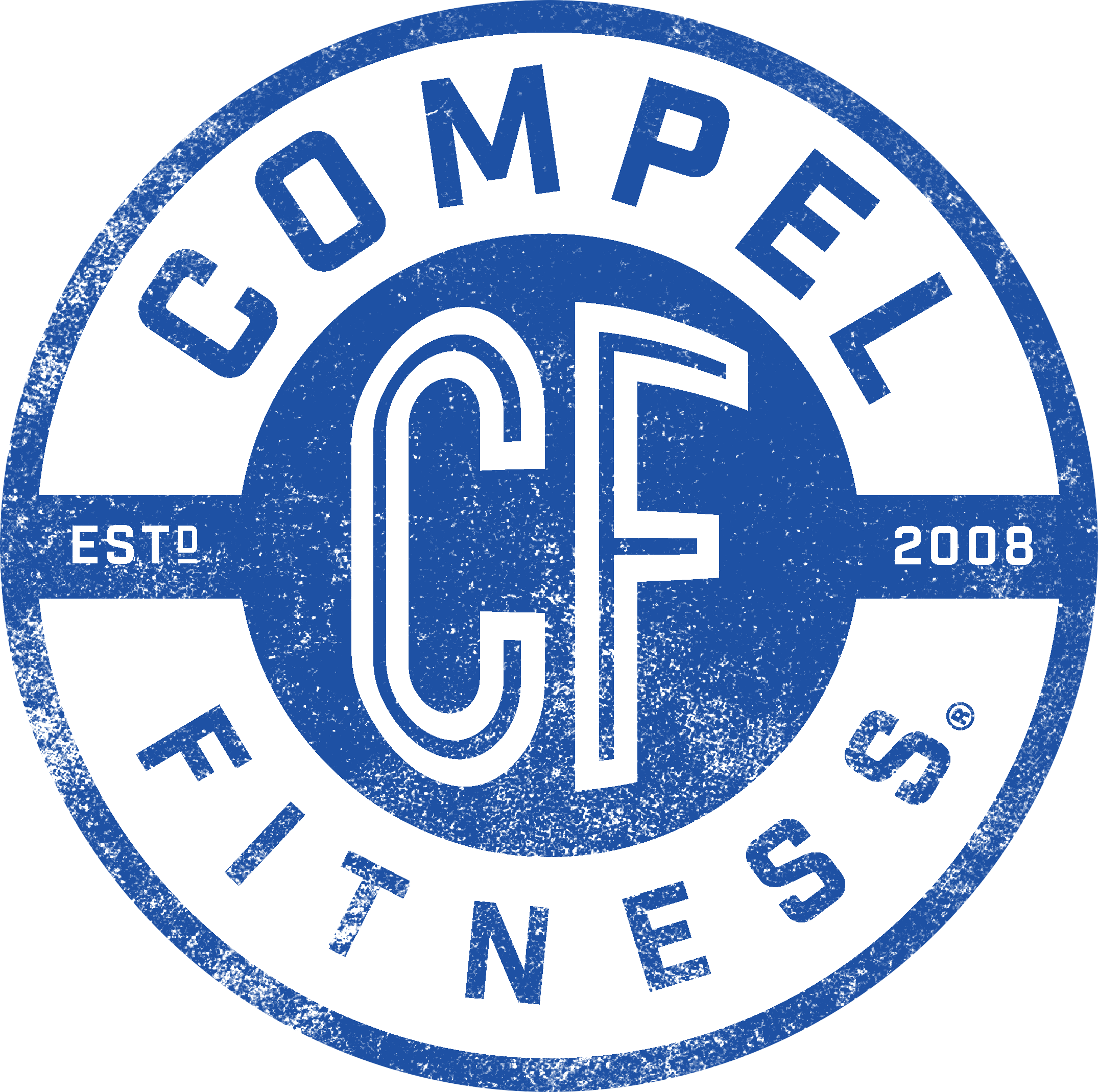The Truth About Carbs...Are they Bad for You?

Do carbs make you fat? After all, so many people are eliminating bread and flour out of their diets so the rumors must be true, right? Lumping all carbs into one category is like saying that all quarterbacks who play for the Cleveland Browns will have short careers…wait, scratch that. On a more serious note, the reputation of carbohydrates over the past few years has flip flopped rapidly. Some diets shun them, while others promote them as a healthful nutrient and an important part of your diet. So which is it? Are carbs good or bad for you? The short answer is yes to both.
Do you remember the scene in the movie Captain America when Chris Evans’ character comes out of the machine after his amazing transformation? Rumor has it that Chris was able to pack on 20lbs of lean muscle mass and lost around 5% body fat for his role in the movie. His daily diet included oatmeal for breakfast and brown rice in the afternoon (among many other foods). How is that he was able to lose body fat and get shredded for the movie all while eating carbohydrates? The point I’m trying to make here is that we need to dispel the myth that carbs themselves automatically make us fat. In order to learn more, we first need to understand that not every carbohydrate is created equal and that the source of carbs in our diet is very important. Let’s begin to shift our perspective on this controversial topic.
Before we do, it’s story time...
There is an old parable that says Bruce Lee approached a local Master to train him in martial arts. At the time, Bruce had extensive fight experience and a vast background in training. When they first met, Bruce rambled on and on about all the fights he had won and his accomplishments, while the Master started to brew some tea. When the tea was ready, he began pouring it into Bruce’s cup. As Bruce watched, the cup started filling up quickly and eventually started to overflow onto the table and then on to the floor. “Stop, stop, the cup is full; you can’t fill it up anymore”, Bruce shouted. The Master stopped pouring and said, “you are like this cup: you are full of ideas and ask for teaching, but your cup is full. Before I can teach you, you must empty your cup.”
We are about to go deeper into this and talk about the truth about carbohydrates, are you willing to empty out your current cup of knowledge concerning this topic? I’m going to assume you said yes and keep going.
What Happens When we Eat Carbs?
Enough of my monologue, let’s get down to brass tacks here. Most people don’t realize that many foods other than breads, pastas, and pretzels have carbohydrates in them. Different types of fruits and vegetables also contain carbs. For example, 3/4 cup of baked beans has around 41g of carbohydrates. For comparison, 1 cup of cooked pasta has around 40g of carbs. Even though these 2 examples have roughly the same amount of carbs, the important thing to consider is that our bodies process those 2 foods in very different ways.
Using our baked beans and pasta example from before, let’s take a closer look at the nutrition facts. That 3/4 cup of baked beans has roughly 11g of fiber, while the cup of cooked pasta only has around 2.5g of fiber. You’re probably wondering why all of this matters. Well hold on to your seats, we’re about to get scientific. When we eat a meal, our body converts the food into glucose, the usable form of energy within our bodies, causing a subsequent rise in our blood sugar levels. When our blood sugar elevates, signals are sent to our pancreas to release insulin, prompting cells to absorb the excess glucose (sugar) in our blood. As a result, our blood sugar steadily returns to a baseline or homeostasis level. The problem is, insulin is a hormone that tells our body when to store calories.

So how does all of this tie together? Well one of the benefits of fiber is that it reduces the absorption of carbohydrates, which in turn reduces blood glucose and insulin levels. It’s no coincidence that almost all plant foods in their natural, unrefined state contain fiber (think apples, artichokes, or broccoli) to help blunt the negative effects of the rise in blood sugar. Heavily processed foods, such as pretzels, muffins, and chips, lose most of their fiber, thus causing a much higher spike in blood sugar and insulin levels. So now we know that not every carbohydrate is created equal and that by choosing carbohydrates higher in fiber, we can help to prevent spikes in our blood sugar, thus keeping insulin levels down and fat burning hormones high. But where do we go from here?
What Should You do About Carbs?
There you have it! A blanket statement like “carbs make you fat” doesn’t really make sense when you break it down. The more important question you should be asking yourself is where are my main sources of carbs coming from. A diet that forces you to eliminate all breads, pastas, and rice from your diet may be difficult for some to sustain long-term. After all, we are interested in a lifestyle change and long-term results, not a temporary fix to look good for our upcoming vacation (although the best of both would be nice!) You should first start by eliminating most of the processed carbohydrates in our diet, such as white rice, cereals, breads, etc. Most of your carbohydrates should come from vegetable (eat more green!) sources to truly maximize the added fiber benefit. Remember, choosing carbohydrates with more fiber helps to keep insulin levels low and fat burning hormones high. Some great options include: green beans, broccoli, asparagus, brussel sprouts, etc.

Additionally, current research shows that if you pair a good source of protein with your carbohydrates at a meal, research shows you are less likely to overeat and the added protein will help you feel fuller throughout the day leading to less snacking between meals. How does organic chicken and steamed broccoli with cauliflower sound? Finally, you should consider your overall fitness goals when deciding what carbohydrates are right for you. If your primary goal is weight/body fat loss, there are plenty of studies that demonstrate how a low-carb (most of the carbs coming from vegetables) diet can be very beneficial for not only weight loss, but general health and longevity as well. On the other hand, if your primary goal is to build muscle, protein becomes an extremely important part of your diet and is necessary for muscle growth and repairing muscle tissue after a strength training workout. In that case, it may be best to add a few sources of whole grains and starches back into your diet to help fuel your workouts and to spare protein as an energy source, thus allowing it to be more readily available for muscle repair/growth.
In the end, we need to keep our fitness goals in mind when considering what sources of carbohydrates are best for our diet. Remember, we are looking for a long-term solution for achieving the body of our dreams, not a temporary fix. Too many diets tend to focus on all of the foods you can’t have, which can often tax our will power and leave us feeling deprived. Instead let’s focus on what we can and should eat more of, like lots of vegetables, grass fed beef, free range poultry, and wild caught fish. Also, choose organic whenever possible to lower your risk of exposure to harmful pesticides. When a healthy lifestyle and diet are concerned, sometimes a little shift in perspective can go a long way.
Tom Daubert
ACSM CEP
Compel Fitness

